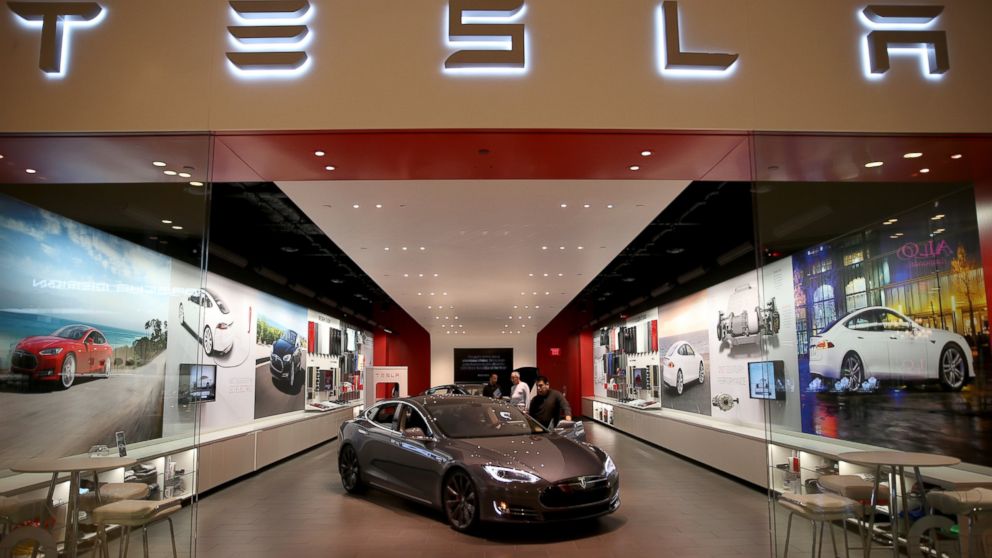Will Tesla Forfeit Its Direct Sales Model?
Tesla may be fighting the wrong battle in insisting on bypassing local dealers.

March 19, 2014 -- How essential to Tesla's future is the company's direct-sales model? The answer, say auto industry observers, is likely to determine how the electric car maker's wrestling match with established auto dealers plays out.
At present, Tesla sells its sleek Model S ($70,000 for a four-door) only from its own showrooms.
Founder Elon Musk told company shareholders last year that some state's laws requiring Tesla to sell through independent dealers constituted nothing less than a "perversion of democracy." He recently blogged that established dealers "have a fundamental conflict of interest between promoting gasoline cars, which constitute virtually all of their revenue, and electric cars, which constitute virtually none."
Established dealers argue that Tesla, by selling direct, is violating state law. New Jersey just became the latest state to side with the dealers. Other states where Tesla is forbidden from selling direct include Texas and Arizona.
Gov. Chris Christie riles Tesla Motors
Dealers say their model, far from being a perversion of democracy, protects consumers—in part, by encouraging price competition: If you can buy the same make and model from several local dealers, the price goes down. Tesla's vertical sales model, says James Appleton, president of the 515-member New Jersey Coalition of Automotive Retailers, does just the opposite, allowing Tesla to charge whatever it wants. "You don't want the fox guarding the henhouse," he tells ABC News.
Cars are not the only products, he points out, where direct sales are prohibited: You can't buy drugs direct from a pharmaceutical maker; nor, except under special circumstances, can you buy alcohol direct from the distiller.
Jack Nerad, executive market analyst at Kelley Blue Book, tells ABC News that the original rationale behind regulations prohibiting direct sales was that, without them, there was nothing to stop a manufacturer from coming into a local market and undercutting the local dealer's price.
"The typical car dealer used to be a single store in a single location selling a single brand," he explains. "Take the Chevy dealer in La Grange, Illinois, where I grew up. That small dealer might have spent a generation building up his business. But if Chevy just decided to pull his franchise or to give it to somebody else, his business could all be gone in a second."
Nerad thinks the market has evolved in such a way that those protections are no longer as necessary as they once were. He compares them to the price supports created, originally, to protect the family farm, but now protecting big corporate farmers.
Established dealers, he says, have a vested interest in keeping things as they are. At the same time, he says, Elon Musk has lots of money and Tesla has a small but highly influential base of fans. The collision of the two forces he calls a major confrontation.
How might it play out?
Tesla, contacted for comment by ABC News, did not respond.
Both Nerad and Appleton foresee a future where Tesla, for both financial and political reasons, might choose to change its sales model.
"In New Jersey," says Appleton, "Tesla has 1/10th of 1 percent of market share. If they want to be more than a bit player—and I'm a fan of their product—they will have to develop greater bandwidth—a distribution system to compete against other makers."




